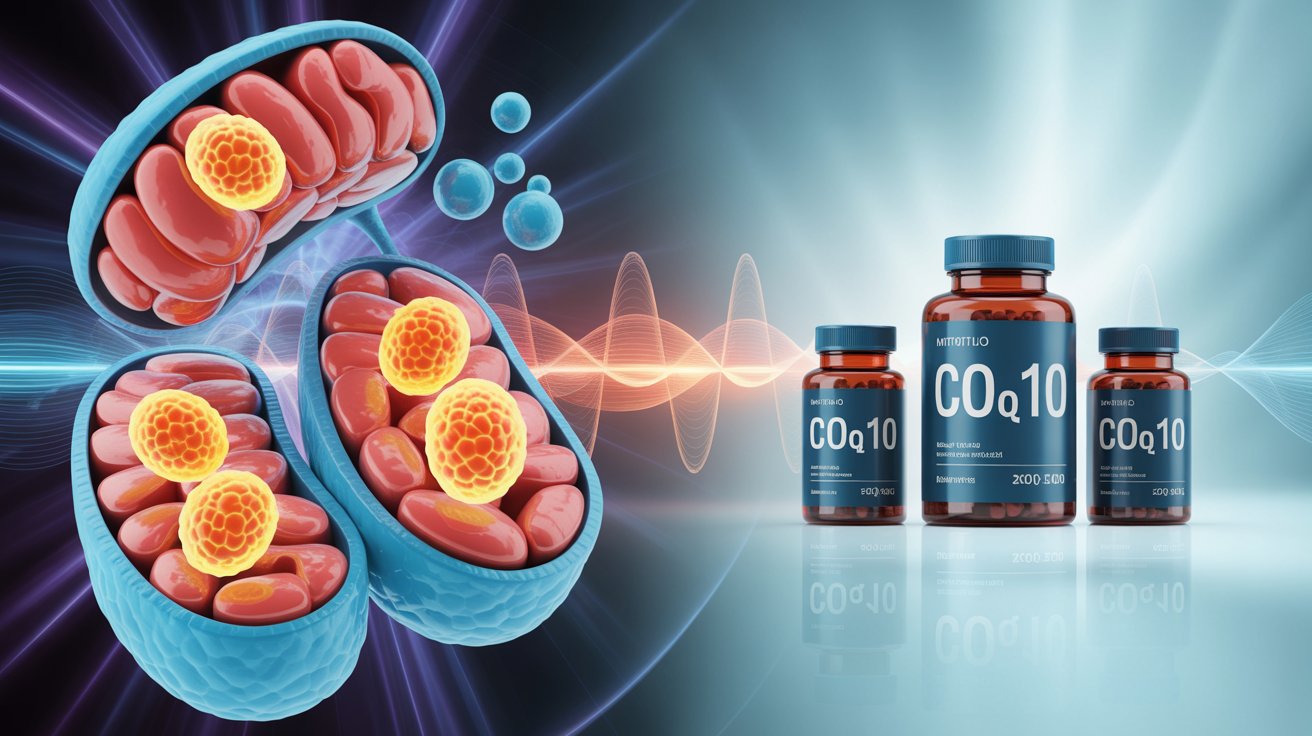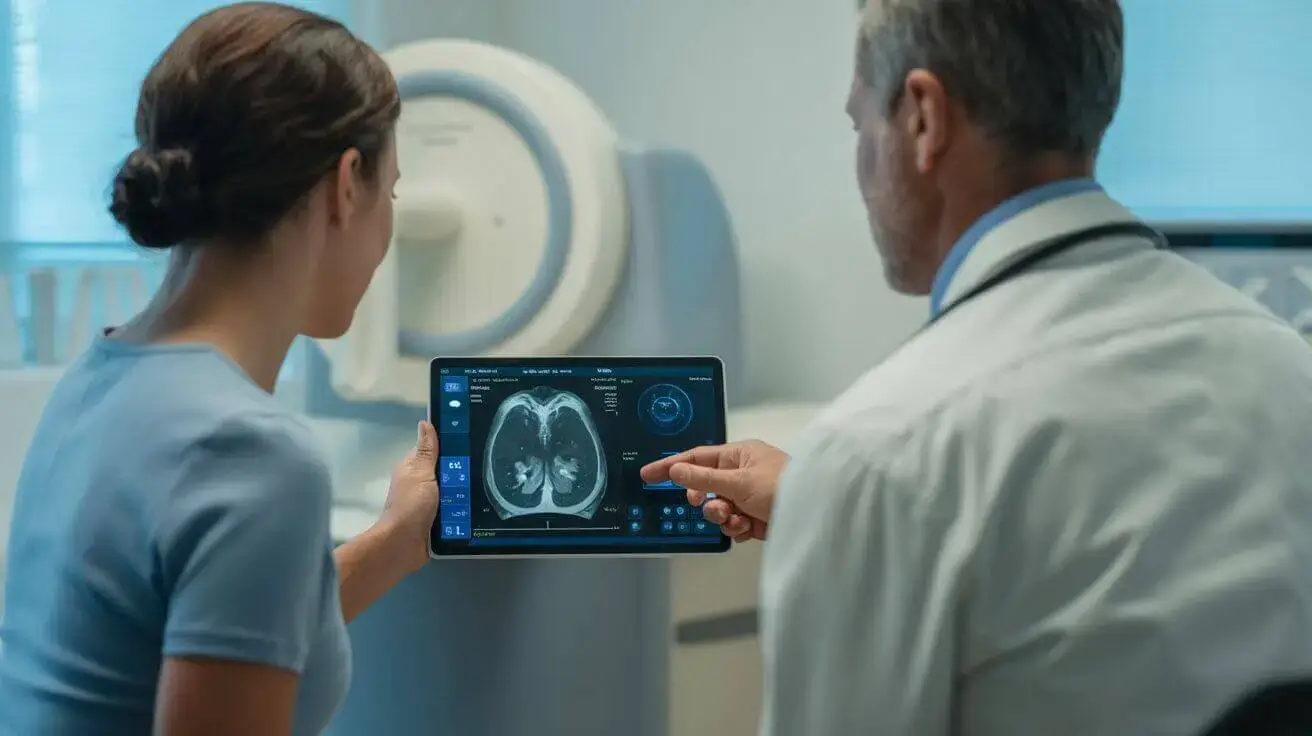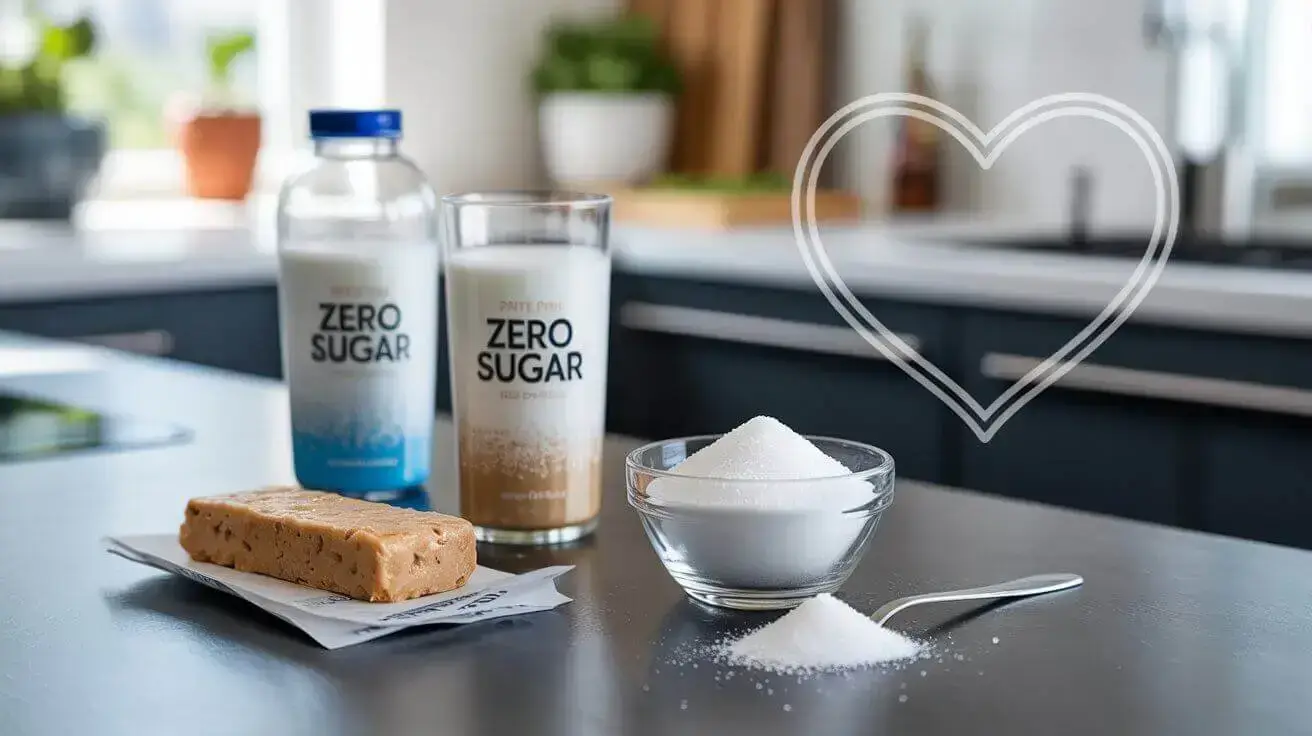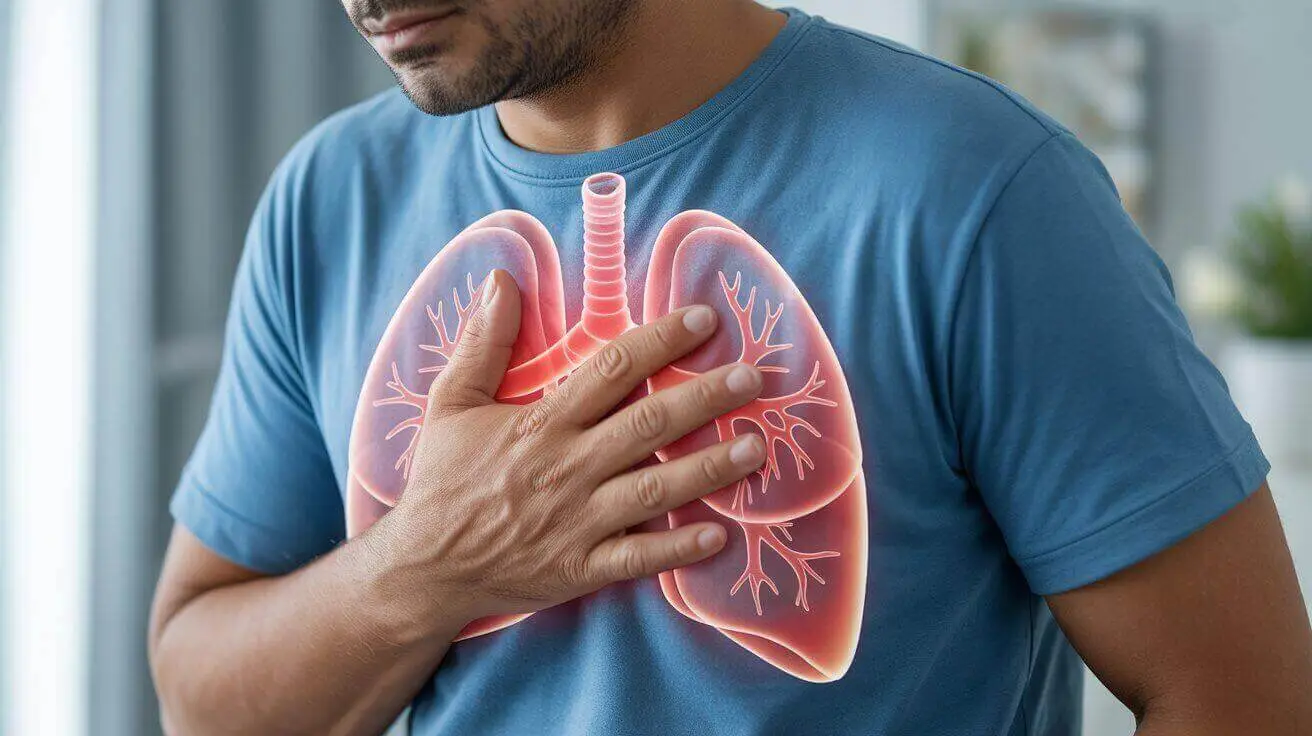It’s a familiar scene for many. You hit your late 30s or early 40s, and suddenly, that boundless energy from a decade ago feels like a distant memory. The afternoons start to drag, workouts feel a bit tougher, and you find yourself browsing the supplement aisle, wondering if there’s a secret weapon you’re missing. One bottle, in particular, seems to be everywhere, promising to recharge your batteries and protect your heart: Coenzyme Q10, or CoQ10. It’s touted by health gurus and featured in countless articles. But what is it, really? And does it live up to the glowing promises, or is it just another fleeting trend?
Understanding this molecule is the first step to separating the science from the sales pitch. It’s not a foreign chemical cooked up in a lab; it’s a substance your own body produces, essential for the very creation of energy in every single one of your cells.
The Spark Plug in Your Cellular Engine
Imagine your cells are tiny engines. The food you eat is the fuel, but you need a spark plug to ignite that fuel and convert it into power. This is why understanding coenzyme Q10 benefits starts with knowing how it functions at the cellular level. Scientifically, it’s a crucial component in the mitochondria—the famous “powerhouses” of the cells—where it helps generate about 95% of your body’s energy in the form of a molecule called ATP (adenosine triphosphate).
Without enough CoQ10, this energy production line becomes inefficient. It’s like trying to run a high-performance car with old, worn-out spark plugs. The engine sputters, and performance drops. This is why CoQ10 is most concentrated in the organs that work the hardest and demand the most energy: the heart, liver, and kidneys.
Beyond its role as an energy facilitator, CoQ10 is also a potent antioxidant. It operates like a security guard, neutralizing unstable molecules called free radicals. These damaging particles are byproducts of normal metabolism and exposure to environmental toxins. Left unchecked, they cause oxidative stress, which can damage cells, accelerate aging, and contribute to a host of chronic diseases. CoQ10 helps protect your cellular machinery from this relentless wear and tear.
However, there’s a catch. The body’s natural production of CoQ10 peaks in your early 20s and begins to decline with age. Certain medications, most notably statins used to lower cholesterol, are also known to deplete the body’s CoQ10 levels. This natural decline is a key reason why supplementation has become so popular, as people look to restore what time has taken away.
The Evidence: Where Coenzyme Q10 Benefits Shine and Where They Don’t
The buzz around CoQ10 isn’t entirely unfounded; it’s one of the more researched supplements on the market. However, the research on coenzyme Q10 benefits varies significantly depending on the specific health condition. It’s crucial to look at what the science says for each specific claim.
More Helpful Reads You Might Like:
Strong Support: Heart Health
The heart is the body’s most energy-demanding organ, so it’s no surprise that this is where CoQ10 has been most extensively studied. For individuals with certain heart conditions, the evidence is quite compelling.
Congestive Heart Failure
Research has shown promising results for CoQ10 as an adjunctive therapy in heart failure. A landmark 2014 study published in JACC: Heart Failure found that long-term CoQ10 treatment in patients with chronic heart failure was safe and significantly reduced major adverse cardiovascular events by 50% compared to placebo.
However, it’s important to note that while this research is compelling, CoQ10 is not currently included in the standard treatment guidelines from the American Heart Association or American College of Cardiology for heart failure management. This is primarily because the evidence—though promising—comes from a single, moderately sized trial with limitations in design, regional variability, and lack of replication in larger, independent studies. Until further high-quality evidence becomes available, CoQ10 remains an optional adjunct and not a formally recommended therapy.
Post-Heart Surgery
Some preliminary research suggests that CoQ10 may help reduce oxidative stress in patients undergoing heart surgeries, such as bypass or valve replacement. However, this remains an area of experimental research, and CoQ10 is not included in standard pre-operative protocols or recommendations from major cardiac surgery societies.
Promising but Mixed: Statin-Related Muscle Pain
Statins are life-saving drugs for millions, but they can come with a frustrating side effect: statin-associated muscle symptoms (SAMS), which can range from mild aches to debilitating pain. Because statins block a pathway involved in producing both cholesterol and CoQ10, it was theorized that replenishing CoQ10 could alleviate these symptoms.
While some individuals report significant relief with CoQ10, large-scale clinical trials have produced conflicting results. Some studies show a benefit, while others find no difference compared to a placebo. The American College of Cardiology and the American Heart Association currently state that CoQ10 is not routinely recommended for SAMS, but they acknowledge that a trial might be considered for some patients. It’s a clear case of “it might help, but it’s not a guaranteed fix.”
Weaker Evidence: General Fatigue and Energy
Given its role in energy production, it seems logical that CoQ10 would be a powerful antidote to everyday fatigue. This is perhaps the biggest area where hype outpaces the evidence. For healthy individuals without a true deficiency, there is very little robust scientific data to suggest that CoQ10 supplements will provide a noticeable energy boost. While some small studies on conditions like fibromyalgia have shown potential benefits for fatigue, it’s not a proven pick-me-up for the average person feeling a bit run down.
Emerging Areas of Interest
Research is ongoing in several other areas, with early but interesting findings:
Fertility: CoQ10’s antioxidant and energy-promoting properties may play a role in improving both egg and sperm quality, which can decline with age. Some fertility specialists may recommend it as part of a broader preconception plan.
Migraines: The American Academy of Neurology has noted that CoQ10 is “possibly effective” in reducing the frequency of migraines in adults, though it’s not considered a first-line treatment.
Skin Aging: When applied topically, CoQ10’s antioxidant effects can help protect the skin from UV damage and may reduce the appearance of fine lines. However, whether oral supplements provide the same cosmetic benefit is less clear.
Practical Steps: Should You Consider CoQ10 Supplements?
Navigating the world of supplements can be overwhelming. If you’re considering CoQ10, a thoughtful and cautious approach is essential. While it’s not a miracle solution, it may offer benefits in specific situations — but it’s important to recognize that CoQ10 is not currently included in standard treatment guidelines for conditions like heart failure or statin-related muscle symptoms. That doesn’t mean it’s ineffective, but it does mean the evidence isn’t yet strong or consistent enough for routine use.
Talk to Your Doctor First
This step is essential. A healthcare provider can assess your individual health status, determine whether you might have a deficiency, and help evaluate if CoQ10 supplementation is appropriate for your case — especially if you have a cardiovascular condition, are taking statins, or are trying to conceive. Because responses to CoQ10 can vary and interactions with medications are possible, medical guidance is key.
Consider Your Diet
While it’s difficult to reach therapeutic doses through food alone, you can support your body’s CoQ10 levels by consuming foods naturally rich in it. These include:
- Organ meats (heart, liver, kidney)
- Fatty fish (salmon, tuna, sardines)
- Lean meats (beef, chicken)
- Vegetables (spinach, broccoli, cauliflower)
- Legumes (soybeans, lentils)
The Final Verdict: More Than Just a Fad
So, is Coenzyme Q10 a miracle cure or just marketing hype? The truth, as it often is in medicine, lies somewhere in the middle. CoQ10 is not a passing fad; it is a fundamental, science-backed compound essential for human health. Its benefits for certain heart conditions are supported by solid evidence, and it remains a promising area of investigation for other issues.
However, its reputation has been inflated by marketing that positions it as a universal energy booster and anti-aging elixir for everyone. For the healthy, active person, the benefits may be subtle at best. The decision to supplement should never be taken lightly or based on a catchy advertisement. It requires a personalized approach, grounded in your unique health profile and guided by a professional.
Before adding any new supplement to your regimen, a conversation with your healthcare provider is the most powerful step you can take. It ensures your choices are not just hopeful, but truly helpful for your long-term health journey.
Medical Disclaimer: This content is for educational purposes only and does not replace professional medical advice, diagnosis, or treatment. Always consult your physician or a qualified healthcare provider with any questions about a medical condition.
Frequently Asked Questions (FAQ)
How long does it take to see results from CoQ10 supplements?
The timeline for experiencing CoQ10 benefits varies significantly depending on the condition being addressed and individual factors. For heart-related conditions, the landmark Q-SYMBIO study showed that meaningful benefits became apparent after long-term use, with significant improvements in cardiovascular outcomes observed after two years of consistent supplementation. For migraine prevention, some individuals may notice a reduction in frequency after three months of regular use. However, for general energy or fatigue, healthy individuals may not experience noticeable changes, as the body typically produces adequate amounts of CoQ10 when functioning normally. It’s important to maintain realistic expectations and work with a healthcare provider to monitor progress.
Can I get enough CoQ10 from food alone, or do I need supplements?
While CoQ10 is naturally present in various foods, obtaining therapeutic levels through diet alone is challenging. The richest dietary sources include organ meats like heart and liver, fatty fish such as salmon and sardines, and smaller amounts in beef, chicken, spinach, and broccoli. However, even a diet rich in these foods typically provides only 5-10 mg of CoQ10 per day, which is significantly lower than the 100-300 mg daily doses used in clinical studies. For individuals with specific health conditions like heart failure or those taking statin medications, supplementation may be necessary to achieve potentially beneficial blood levels. A balanced approach involves maintaining a healthy diet rich in CoQ10-containing foods while considering supplementation under medical guidance when appropriate.
Is it true that CoQ10 can help with statin-related muscle pain?
The relationship between CoQ10 and statin-induced muscle symptoms remains one of the most debated topics in this field. While the biological rationale is sound—statins can reduce the body’s natural CoQ10 production—the clinical evidence presents a mixed picture. Some individuals report significant relief from muscle aches and weakness when taking CoQ10 supplements alongside their statin medication. However, large-scale clinical trials have produced conflicting results, with some showing benefits and others finding no difference compared to placebo. The American College of Cardiology and American Heart Association currently do not routinely recommend CoQ10 for statin-associated muscle symptoms, though they acknowledge it may be worth trying for some patients. The variability in individual responses suggests that genetic factors, baseline CoQ10 levels, and other personal health characteristics may influence effectiveness.
Are there any risks or side effects I should be aware of before taking CoQ10?
CoQ10 is generally considered safe for most people, with an excellent safety profile established through numerous clinical studies. The most commonly reported side effects are mild and include digestive issues such as nausea, stomach upset, or diarrhea, particularly when starting supplementation or taking higher doses. Some individuals may experience mild insomnia, dizziness, or headaches. More importantly, CoQ10 can interact with certain medications, particularly the blood thinner warfarin, potentially affecting its effectiveness and increasing bleeding risk. It may also interact with insulin and some diabetes medications. Individuals with diabetes, those taking blood thinners, or anyone with chronic health conditions should consult their healthcare provider before starting CoQ10. Pregnant and breastfeeding women should avoid supplementation unless specifically recommended by their doctor, as safety data in these populations is limited.
Sources & Further Reading
1.Mortensen SA, Rosenfeldt F, Kumar A, et al. The Effect of Coenzyme Q10 on Morbidity and Mortality in Chronic Heart Failure: Results From Q-SYMBIO: A Randomized Double-Blind Trial. JACC Heart Fail. 2014;2(6):641-649. https://www.jacc.org/doi/10.1016/j.jchf.2014.06.008
2.National Center for Complementary and Integrative Health. Coenzyme Q10. National Institutes of Health. Updated January 2019. https://www.nccih.nih.gov/health/coenzyme-q10
3.Mayo Clinic Staff. Coenzyme Q10. Mayo Clinic. Updated May 22, 2025. https://www.mayoclinic.org/drugs-supplements-coenzyme-q10/art-20362602
4.Sood B, Keenaghan M. Coenzyme Q10. StatPearls [Internet]. Treasure Island (FL): StatPearls Publishing; 2024. https://www.ncbi.nlm.nih.gov/books/NBK531491/
5.Al Saadi T, Assaf Y, Farwati M, et al. Coenzyme Q10 for heart failure. Cochrane Database Syst Rev. 2021;2(2):CD008684. https://pmc.ncbi.nlm.nih.gov/articles/PMC8092430/
6.Sharma A, Fonarow GC, Butler J, Ezekowitz JA, Felker GM. Coenzyme Q10 and Heart Failure: A State-of-the-Art Review. Circ Heart Fail. 2016;9(4):e002639. https://www.ahajournals.org/doi/10.1161/circheartfailure.115.002639
7.Harvard Health Publishing. CoQ10 supplements unlikely to benefit statin users. Harvard Medical School. June 1, 2020. https://www.health.harvard.edu/heart-health/coq10-supplements-unlikely-to-benefit-statin-users










